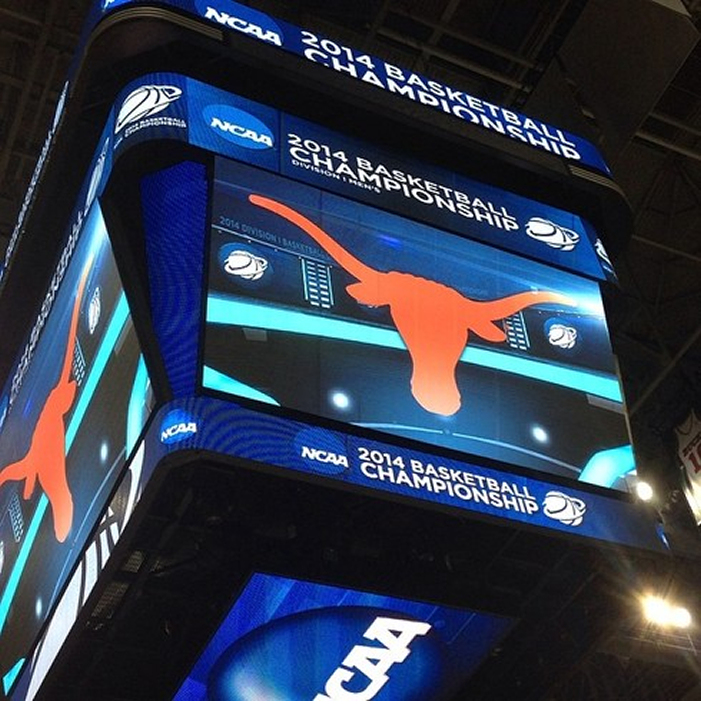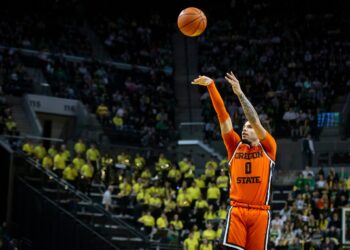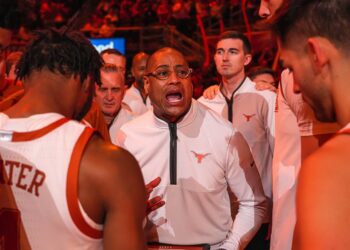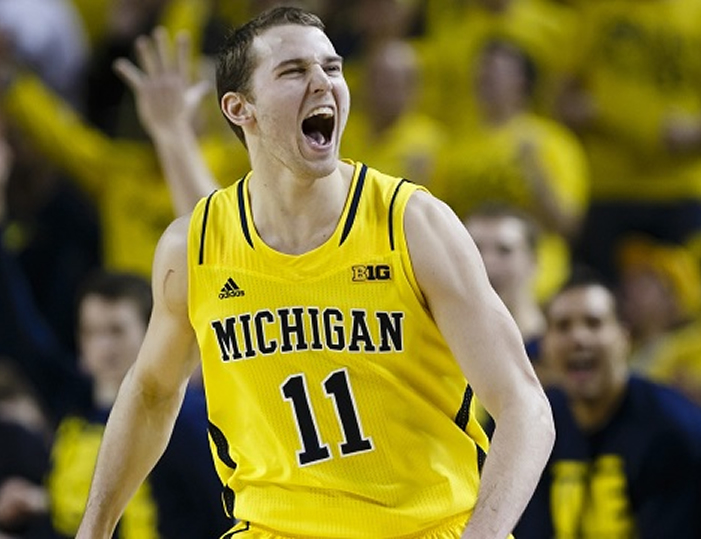With a dramatic buzzer beater, Texas defeated Arizona State on Thursday night. In doing so, the Longhorns advance to the (cough, cough) 3rd round to play the Michigan Wolverines (26-8, 15-3).
Saturday’s game will be the third time that Texas and Michigan have played in the NCAA tournament. The last time the two teams faced each other was in 1996. The Horns won that game, 80-76 and notably it was played in Milwaukee, WI – the same site as Saturday’s tilt.
The Longhorns’ connections to this game don’t end there…freshman Martez Walker is from Detroit (Pershing High School). Walker has scored in double figures in 3 of the last 4 games and will look to extend that streak against Michigan. The Detroit native had a career-best 16 points against ASU. He also had a career high of 9 made free throws (10 attempts) on Thursday night.
The Longhorns also have experience against Michigan’s coach, John Beilein. Texas played a Beilein-coached West Virginia squad in 2005, eking out a 76-75 win.
The Wolverines enter the contest after beating the Wofford Terriers, 57-40. Michigan shot just 3-18 in the first half but was able to rely on their athleticism to hold a defensive advantage throughout the game. Normally, the Wolverines are an extremely efficient offense, so a look at Thursday’s offensive numbers would lead most to think that Wofford had a chance. However, the Terriers were a miserable 1-19 from three-point range courtesy of Michigan’s defense.
This year, Michigan won it’s first outright Big Ten title in 28 seasons despite playing most of the season without Mitch McGary (Preseason Wooden & Naismith lists). In his seventh year as the maize and blue’s coach, Beilein led Michigan back to the NCAA tournament after an 11-year drought in 2009. The Wolverines have now played in 4 consecutive NCAA championships, and advanced to the championship game last year.
Saturday’s game between Texas and Michigan will be a contrast in styles. Texas prides itself on team defense and rebounding, while Michigan led the Big 10 in field goal percentage, 3-point percentage and free throw percentage. Uncharacteristically, both teams advanced to this game via styles that defy that statement – Texas used a balanced offense (6 players in double figures was a season high) and Michigan limited Wofford to 40 points and 34% from the field.
Key metrics‘”
- n”.self::process_list_items(“‘.str_replace(‘
‘, ”, ‘
[*]The Wolverines commit more than 14 fouls/game. The highest rate in the country.
[*]Texas is now 7-1 in games decided by 3 points or fewer.
[*]Michigan is a strong 2nd half team. The Wolverines have six wins after trailing at halftime.
[*]Under Barnes, the Horns win 90% of their games when they hold opponents under 40% from the floor. Michigan’s fgp this season is 47.6%.
[*]Michigan has 14.2 assists/game and a +1.5 turnover margin, but a rebounding margin of only +0.9/game. Conversely, Texas owns a +6.9 rebounds/game margin, but has a -0.8 turnover margin.
‘).'”).”n
“‘
Prediction
Any time two teams have such disparate styles of play, it is difficult to predict the game with any certainty. Michigan is an excellent team and some of their strengths matchup well against what have proved to be weaknesses in Texas losses. However, the Wolverines rely on a lot of jump shots and in a single elimination tournament, that can be problematic. To pull off the upset, the Horns must play well defensively. Whether it’s contesting jump shots or being physical off the ball, Texas cannot afford to let Michigan get too comfortable on offense.
Shooting nearly 60% in the first half against ASU, Texas had one of it’s best efforts of the season. But, however tempting, to try and match Michigan offensively would be a mistake. Instead, if the Horns can balance their scoring and consistently make the extra pass to develop rhythm on the offensive end, they slow the game down and limit Michigan’s possessions.
Can Texas beat Michigan? Absolutely. Will Texas beat Michigan? Not likely, but they call it March Madness for a reason.













